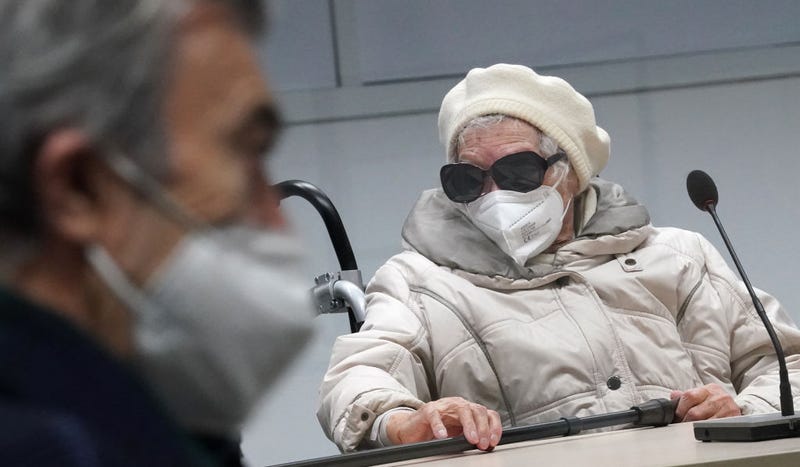
On Tuesday, one of the last possible trials in Germany for Nazi crimes ended when a 97-year-old woman was found guilty of aiding and abetting the murders of over 10,500 people at a Nazi concentration camp.
The verdict came more than a year after opening statements were given in the trial, according to the court’s criminal chamber.
The woman, Irmgard Furchner, worked as a civilian typist in the commandant’s office at the Stutthof concentration camp located in Nazi-occupied Poland from June 1943 to April 1945, the BBC reported.
Furchner was convicted of assisting those in charge of the camp with the systematic killing of thousands of inmates and given a two-year suspended jail sentence.
During her time at the camp, Furchner worked for Paul-Werner Hoppe, who was the commander of Stutthof. He was imprisoned in 1955 for being an accessory to murder. Five years later, he was released.
The camp that Furchner worked at was notorious for its purposeful lack of care for the prisoners who perished from disease, debilitation, mistreatment, or execution. The camp was also known for its gas chamber and neck-shooting facility.
Throughout World War II, the Nazis took the lives of more than 6 million Jews. At the Stutthof camp, they were responsible for imprisoning more than 100,000 throughout the war. Historians have estimated around 65,000 people died there.
At the start of her trial in September 2021, Furchner fled from her retirement home, resulting in police issuing a warrant for her arrest and finding her in Hamburg, CBS News reported at the time.
The trial took place in juvenile court, as Furchner was 18 when she worked at the camp. Her defense argued that she could not be proven beyond a reasonable doubt to have been aware of the killings taking place.
The prosecution called several witnesses who were survivors of the camp. Some of them passed during the trial, as it lasted more than 15 months.
One of the witnesses was Manfred Goldberg, a survivor of the concentration camp. He said in his testimony that there was no way Furchner didn’t know what was going on at the camp, the Guardian reported.
“It is my belief that it would have been impossible for Furchner not to have known what was going on there, as she claims. Everything was documented, and progress reports, including how much human hair had been harvested, sent to her office,” Goldberg said.
Another witness, Josef Salomonovic, was present during the verdict reading and spoke with reporters afterward. Salomonovic was six years old when he was a prisoner at Stutthof, the BBC reported. He shared that he watched his father be shot and killed while at the camp. He says that Furchner was “indirectly guilty.”
“Even if she just sat in the office and put her stamp on my father's death certificate,” Salomonovic said.
Furchner was allowed to speak on the last day of the proceedings. The woman shared her apologies for what had happened.
“I’m sorry for everything that happened, and I regret that I was in Stutthof at the time. That’s all I can say,” Furchner told the courtroom, Politico reported.
Goldberg spoke out against the sentence handed down. Furchner received a suspended jail sentence, meaning she will not actually serve any time in prison.
While Goldberg says “no one in their right mind would send a 97-year-old to prison,” he does think the sentence should reflect the “severity of the crimes,” the BBC reported.
“If a shoplifter is sentenced to two years, how can it be that someone convicted for complicity in 10,000 murders is given the same sentence?” Goldberg asked.
With Nazi war criminals continuing to age, with World War II having ended 77 years ago, Furchner’s trial was likely the last of its kind.


